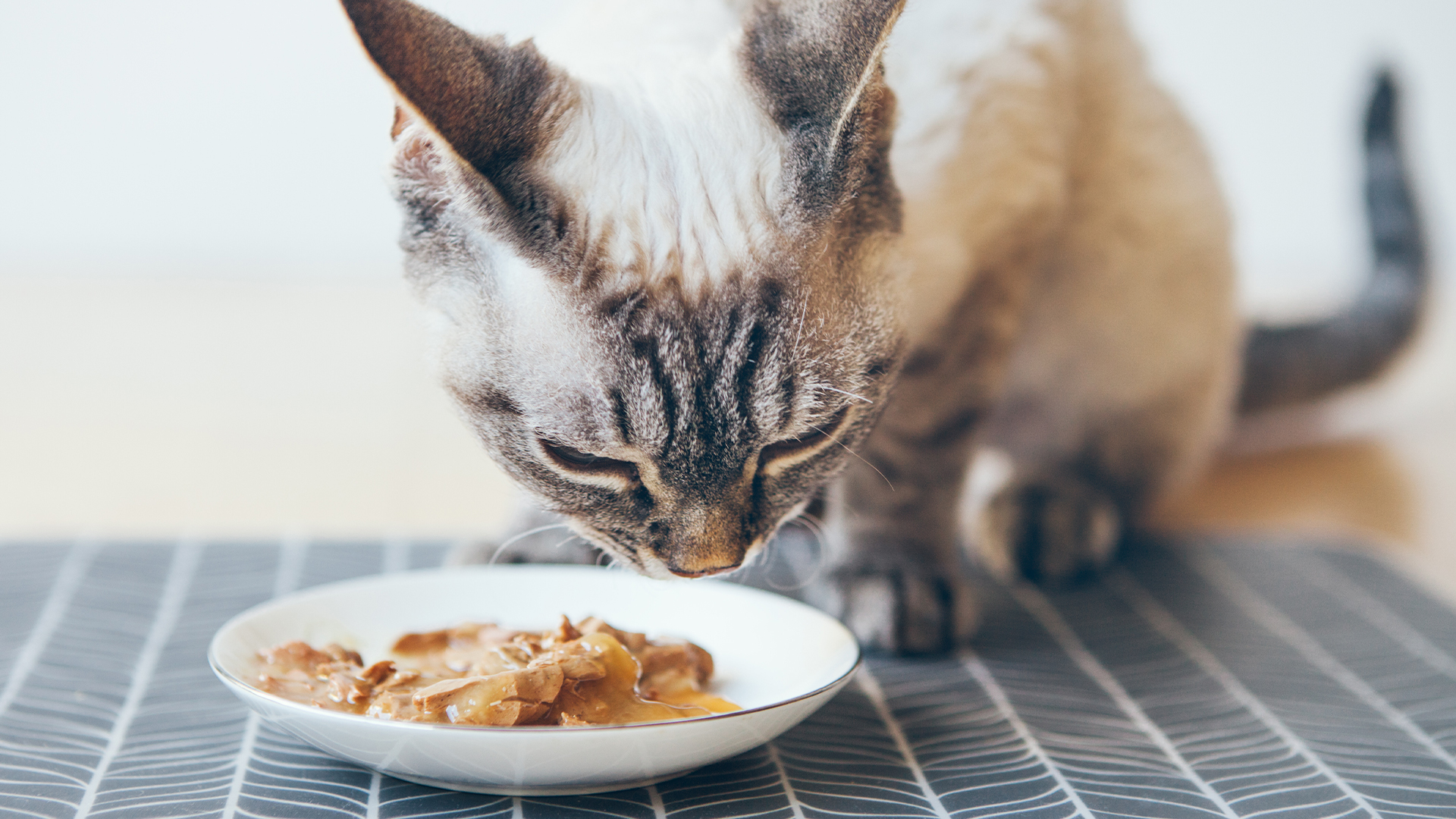Scientists finally figure out why cats are obsessed with tuna
Cats love tuna because it contains high concentrations of chemicals that make its umami taste receptors light up.

A tin of tuna is among the most iconic cat foods. Even the most finicky felines seem to love the stuff. Now, scientists know why.
In a study published in the August issue of the journal Chemical Sense, researchers found that cats, like humans, use taste receptors that detect umami — one of the basic tastes alongside sweet, sour, bitter and salty. But unlike human umami receptors, cats' taste receptors bind to two chemicals found in particularly high concentrations in tuna. These chemicals enhance the umami experience for cats, making them strongly prefer the fishy treat.
Umami is what gives food a savory or meaty flavor, so it makes sense that an obligate carnivore like a cat would prefer its taste.
Previous research showed that cat taste preferences differ significantly from a human's. It's well established, for instance, that felines are ambivalent about sugar — they neither prefer it nor avoid it — because they can't taste it, as their sweet taste receptor gene is dysfunctional. Experts hypothesize that they lost the ability to taste carbohydrates and sweeteners because these macronutrients aren't essential to their survival.
Similarly, cats have fewer bitter taste receptors than humans. Again, this is probably because sensing bitter tastes is not as useful to them as it would be to a herbivore or omnivore that uses bitterness to help rule out toxic plants.
"Since discovering that cats don't have a functional sweet taste receptor, we did wonder what they would respond to instead," study lead author Scott McGrane, sensory science expert at the Waltham Petcare Science Institute, told Live Science.
For the first time, McGrane and colleagues demonstrated that cats express the umami-related gene, Tas1r1, in their taste buds. The scientists did this by dissecting the tongue of a 6-year-old male cat (that had been euthanized for other reasons) to look at gene expression on the tongue. In humans, two genes, TAs1r1 and Tas1r3, work together to sense umami. Scientists knew cats had TAs1r3 activity but were unsure about Tas1r1. But this research found that felines possess both genes needed to conduct umami taste.
Get the world’s most fascinating discoveries delivered straight to your inbox.
However, a closer look at the proteins encoded by the cat TAs1r1 and Tas1r3 genes showed that they are very different from the human genes. In the cat, the binding sites for glutamic and aspartic acid — the two amino acids most responsible for human umami experience — were mutated.
It turns out that, unlike humans, amino acids don't bind to the cat umami receptor alone. Instead, nucleotides, which are common in meat and yeast, bind to the cat receptor, and amino acids such as glutamic and aspartic acid can then have an enhancing effect — the opposite of what happens in humans.
This makes tuna a favorite for cats because it contains the nucleotide inosine monophosphate, which has a strong affinity for the umami binding sight. Tuna also contains large quantities of the amino acid L-Histidine, an essential amino acid for cats and a strong umami enhancer, McGrane said.
"The L-histidine content of tuna is much higher than the other fish species and meat sources," McGrane said.
A taste panel of 25 cats confirmed the findings. The team placed a series of water bowls in front of the cats containing varying amounts of amino acids and nucleotides as well as a control water. The cats showed a strong preference for those combinations that most activated their umami receptors, suggesting that taste is a key driver of the felines' meat eating.
These preferences could drive the formulation of tastier cat food and pharmaceuticals. While manufacturers knew cats were drawn to meaty and savory foods, this is another level of detail, Melissa Vanchina, director of product design at Hill's Pet Nutrition and cat taste preference expert, told Live Science.
"This literally takes it to this molecular level and gives us compounds that we can start to work with," she said.
It's critical we ensure "that animals WANT to eat the foods we formulate," Anna Kate Shoveller, feline nutritional physiologist at University of Guelph in Canada, told Live Science via email.

Donavyn Coffey is a Kentucky-based health and environment journalist reporting on healthcare, food systems and anything you can CRISPR. Her work has appeared in Scientific American, Wired UK, Popular Science and Youth Today, among others. Donavyn was a Fulbright Fellow to Denmark where she studied molecular nutrition and food policy. She holds a bachelor's degree in biotechnology from the University of Kentucky and master's degrees in food technology from Aarhus University and journalism from New York University.
 Live Science Plus
Live Science Plus





